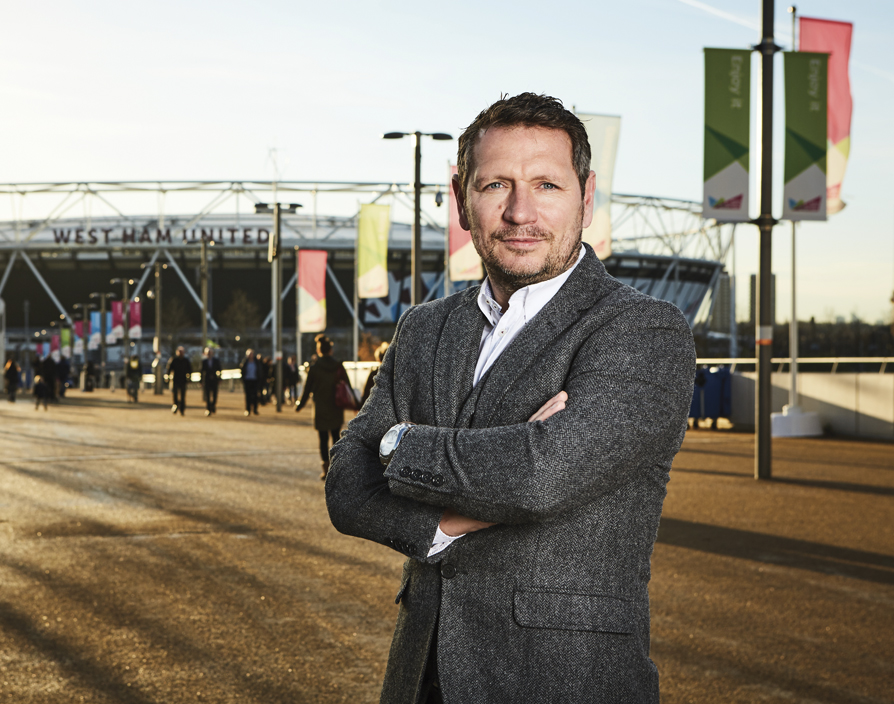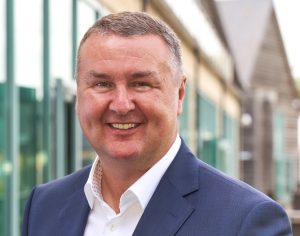One thing becomes apparent after spending only a short time with David Batch: he has a genuine passion for education. “Learning is brilliant,” he says. “I had a Mandarin lesson this morning: about my fourth or fifth. Then I was listening to the audiobook of Peter Guber’s Tell to Win as I was driving down here.” Batch certainly doesn’t shy away from gathering new knowledge, so it’s hardly surprising that he now sits at the helm of the Premier Education Group, a national sports-coaching and education brand with 84 franchisees and 987 coaches and tutors around the UK.
Despite this love of learning, when Batch was attending school in rural Norfolk, it was perhaps the extra-curricular activities he undertook that had the largest impact on the man he would become. “The kind of stuff I learnt at school was a little bit more about life,” he says. Without a doubt, Batch demonstrated considerable entrepreneurial flair: at the age of 13 he set up a company with friends, selling everything from pens to breadboards at an “unbelievable profit margin” at Christmas fairs. “We even used to copy tapes off the ZX Spectrum: we’d record them, then go and sell them for a fiver in school,” he says. “I always had a bit of a thing about buying, selling and making things happen.”
Wheeling and dealing weren’t his only loves however: after leaving school at 15, Batch got to exercise his passion for the pitch. “I played for Cambridge United Football Club for a couple of years,” he says. “I became captain of the youth team and then of the reserve team.” Within a few years, Batch had decided to make the move into coaching and secure his license. But given that UEFA ran separate courses for the general public and for professionals, he suddenly found himself rubbing shoulders with famous managers and seasoned global stars. “In some cases, I was doing sessions with international footballers that were twice my age and having to tell them what to do,” he says. “So it was quite daunting.”
Becoming the youngest UEFA-A-qualified coach in the world at just 20, Batch soon started running his own coaching business before selling it to focus on coaching professionally full-time. But when he decided to drop in on one of his fellow entrepreneurs from his school days, he began to realise something was missing. “I spent the day with him in his office in Bristol, doing all of the things that a small, one-man band would do and I just felt really jealous,” he says. “It was much more exciting: I realised it was what I wanted to do.”
Although Batch acknowledges that working in professional football sounds glamorous, he found he wasn’t able to innovate as much as he’d like. “Doing that particular role we were always trying to push new learning, push new barriers,” says Batch. Whether it was emphasising the importance of stretching and warm downs, encouraging the use of carbohydrate drinks or educating players about loading, Batch dedicated a lot of time to introducing new ideas that at the time weren’t even being considered by the coaching industry. And he began to think that starting something up of his own would allow him to forge his own path. “Whilst I was trying to be a bit innovative, that still wasn’t enough,” he says. “That day in Bristol, I found myself thinking ‘I need to do this’.”

Josh Russell
When he isn't tooling around on trains in a tux like the Daniel Craig of the Greater Anglia transport system, Russell spends his time living the glamourous life of an enterprise journalist, judging Digital Business of the Year at the National Business Awards and attending conferences like NixonMcInnes' Meaning 2013. However, like all good secret agents, Russell lives a double life - in his case, as a closet revolutionary. Social enterprise, sustainable business and collaborative practices are his true passions, something that he has had plenty of opportunity to air in his features here at Elite Franchise.

Josh Russell
When he isn't tooling around on trains in a tux like the Daniel Craig of the Greater Anglia transport system, Russell spends his time living the glamourous life of an enterprise journalist, judging Digital Business of the Year at the National Business Awards and attending conferences like NixonMcInnes' Meaning 2013. However, like all good secret agents, Russell lives a double life - in his case, as a closet revolutionary. Social enterprise, sustainable business and collaborative practices are his true passions, something that he has had plenty of opportunity to air in his features here at Elite Franchise.
































